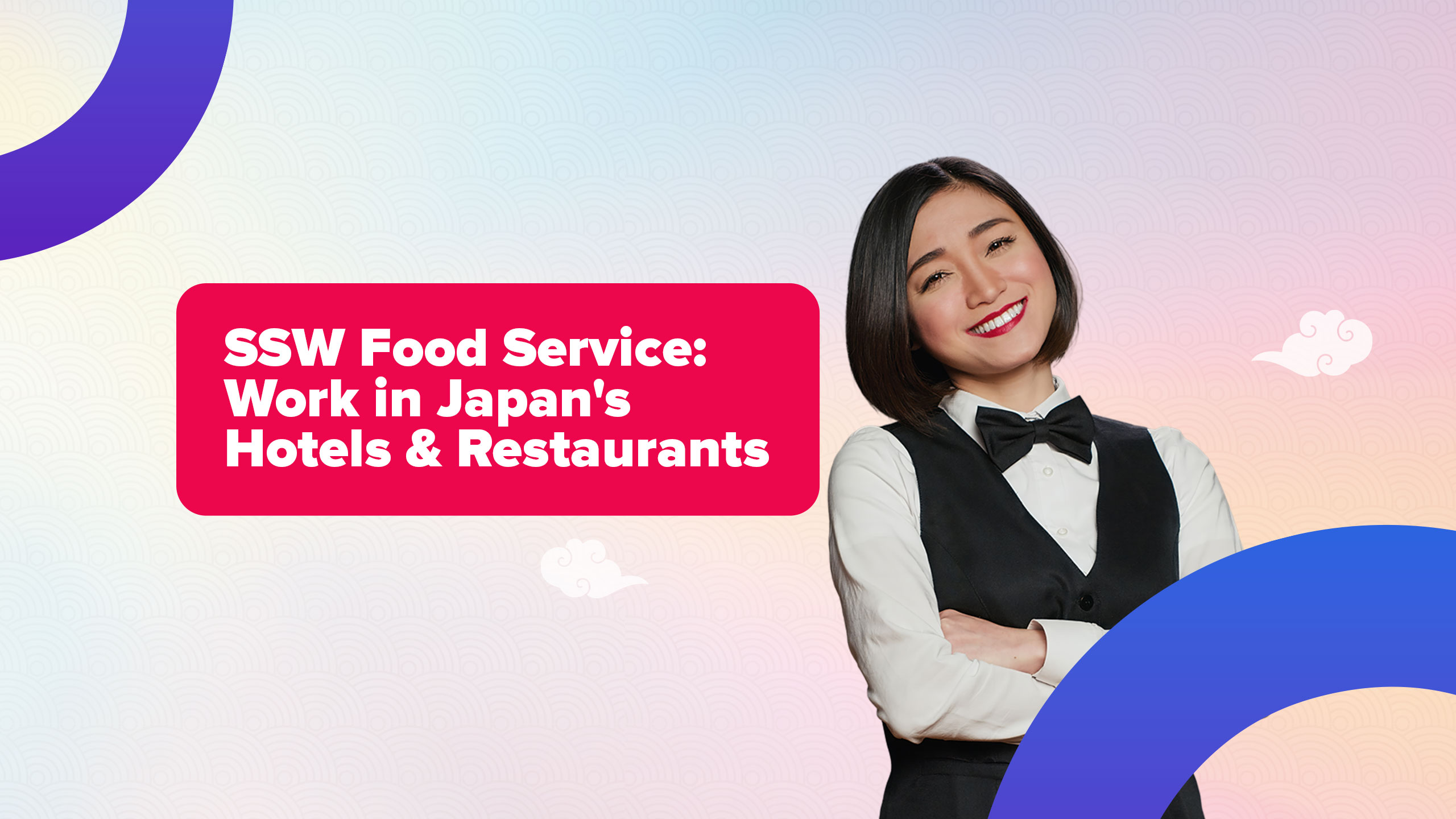
Introduction
The Specified Skilled Worker (SSW) visa is increasingly popular among Nepali job seekers looking to expand their horizons and build promising careers in Japan. Japan’s growing demand for skilled labor has opened doors for many, and Nepal has emerged as a significant source of dedicated, hardworking professionals who are eager to pursue these opportunities. For Nepali candidates, preparing for the SSW can be challenging, but with the right approach, it becomes a feasible pathway to career advancement and financial stability. This article breaks down everything you need to know about SSW preparation in Nepal, from understanding the program to the nitty-gritty of exam requirements, costs, and tips for success.
Table of Content:
- Introduction
- What is SSW?
- Why is SSW important for Nepali Workers?
- SSW Preparation In Nepal
- SSW Preparation cost in Nepal
- Choosing the best SSW preparation Center in Nepal
- Top SSW preparation Center in Nepal
- Requirements for SSW Classes in Nepal
- SSW Exam Structure
- SSW Exam tips and strategies
- Application for SSW
What is SSW?
The term SSW stands for Specified Skilled Worker, a visa category introduced by Japan to attract foreign skilled workers across various industries. Unlike other work visas, the SSW focuses on specific skills and requires applicants to pass exams to prove their language proficiency and technical knowledge. The program initially allows successful applicants to work in Japan for up to five years, with potential extensions and future opportunities based on performance and industry needs.
Why is SSW Important for Nepali Workers?
Japan has one of the world’s fastest-aging populations, which has led to a shortage of workers in essential fields. To fill these gaps, Japan has created structured pathways to bring in foreign talent, and Nepal, with its skilled and motivated workforce, is a prime contributor. The SSW visa offers various benefits for Nepali workers, including:
- Higher Wages: Japan offers competitive salaries, which can significantly improve living standards for Nepali families.
- International Exposure: Working in Japan provides valuable international experience.
- Skill Development: The SSW program often includes skill enhancement opportunities and training.
- Career Growth: Successful SSW workers may have opportunities for further career advancement within Japan.
For Nepali workers, this program offers a blend of personal growth, financial gains, and valuable professional exposure.
SSW Preparation in Nepal
Preparing for the SSW visa in Nepal requires planning, training, and determination. The process typically includes the following steps:
- Finding a Suitable Preparation Center: The right center can make a big difference by providing structured training and guidance.
- Studying Japanese Language and Skills: Proficiency in Japanese is essential, so language classes are often a crucial part of preparation.
- Exam Registration and Documentation: Candidates must register for the SSW exam and ensure they have the necessary documents in place.
- Continuous Practice and Mock Exams: Regular practice, including mock tests, helps applicants prepare for the official examination.
For many, this journey can take several months and may require balancing other commitments, but thorough preparation can significantly improve the likelihood of success.
SSW Preparation Cost in Nepal
One of the first questions for many is: How much will SSW preparation cost? The cost of preparing for the SSW exam in Nepal includes language classes, technical training, exam fees, and administrative costs for processing. While expenses may vary based on the preparation center chosen, here’s a general breakdown:
- Language Training: On average, Japanese language classes cost around NPR 40,000 to NPR 60,000, depending on the level of instruction and course duration.
- Technical Skills Training: Skills-specific courses may cost NPR 20,000 to NPR 50,000, based on the industry.
- Exam and Application Fees: These can range from NPR 10,000 to NPR 20,000, depending on the specific test requirements.
- Additional Costs: Miscellaneous expenses for travel, study materials, and documentation can add NPR 10,000 to NPR 20,000.
In total, preparing for the SSW visa can cost between NPR 100,000 and NPR 150,000, depending on the resources and services provided.
Choosing the Best SSW Preparation Center
With several centers in Nepal offering SSW training, selecting the right one is crucial. Here are factors to consider when making your choice:
- Reputation and Success Rate: Research the center’s history and read testimonials to gauge its success in helping students pass the SSW exam.
- Comprehensive Curriculum: The center should cover both Japanese language skills and technical knowledge for your target industry.
- Qualified Instructors: Experienced instructors, especially those with knowledge of Japanese work culture, add value to the learning experience.
- Mock Exams and Practical Training: Centers that offer mock exams can provide a real feel of the exam format and help reduce test anxiety.
- Post-Exam Support: Some centers offer assistance with job placements and other processes after passing the exam, which can be invaluable.
Taking the time to choose the right center can significantly impact your preparation and future success.
Top SSW Preparation Centers in Nepal
Here are some well-regarded centers in Nepal:
- Nepal Japan SSW Center: Known for its comprehensive programs and high success rate, Nepal Japan SSW Center is a popular choice.
- SSW Academy Nepal: With a focus on practical training and industry-specific knowledge, SSW Academy offers a robust program.
- Global Institute for Japanese Workforce: This center has experienced instructors and is known for providing reliable language and skills training.
These centers offer targeted training programs tailored to meet the needs of aspiring SSW applicants.
Requirements for the SSW Exam
To qualify for the SSW exam, candidates must meet certain prerequisites. Here’s what you need:
- Japanese Language Proficiency: A JLPT (Japanese Language Proficiency Test) N4 level or higher is typically required.
- Industry-Specific Skills Test: Each field has a different set of skill requirements, so candidates must pass a skills test based on their industry.
- Educational and Identification Documents: Candidates need to submit necessary identification, educational certificates, and any relevant work experience documentation.
Meeting these requirements is essential for eligibility and to proceed with the SSW application process.
SSW Exam Structure
The SSW exam consists of two main sections:
- Japanese Language Test: This assesses your Japanese proficiency, focusing on grammar, vocabulary, and comprehension.
- Technical Skills Test: This test covers field-specific skills related to the industry you’re applying for, such as healthcare, construction, or agriculture.
Understanding the structure of each section can help applicants prepare more effectively and improve their chances of passing.
SSW Exam Tips and Strategies
Passing the SSW exam requires discipline and strategy. Here are some useful tips:
- Consistent Language Practice: Practicing Japanese daily can improve your fluency and comprehension, which are critical for the language exam.
- Take Mock Exams: Mock exams help familiarize you with the format, time constraints, and pressure of the actual test.
- Focus on Industry Knowledge: For the skills test, concentrate on the technical details relevant to your industry. The more specific knowledge you acquire, the better.
Application Process for SSW in Nepal
Here is a simplified version of the application process:
- Choose a Preparation Center: Enroll in a reputable center for structured training.
- Complete Language and Skills Training: Prepare yourself with both Japanese language and industry-specific skills.
- Register for the Exam: Register through an approved organization.
- Gather Necessary Documentation: Make sure all documents are up-to-date and accurate.
- Attend Exam and Interview: Pass the exam and complete any required interview.
Each step brings you closer to your goal of working in Japan under the SSW visa.
Cost of Living and Expected Salary in Japan
One of the primary motivations for Nepali workers applying for the SSW visa is the promise of higher wages. Here’s what you need to know:
- Monthly Salary: SSW holders typically earn between ¥160,000 and ¥250,000 monthly, depending on industry and location.
- Living Costs: In urban areas, rent, food, and transportation costs are higher, with living expenses averaging around ¥100,000 monthly.
Budgeting carefully can help workers save money while supporting their families back home.
Common Challenges and Solutions
Living and working in a new country brings challenges. Common issues include:
- Language Barriers: Japanese is a difficult language, but regular practice and immersion help.
- Cultural Differences: Learning Japanese customs can help with adjustment.
- Homesickness: Staying connected with family and building a support network in Japan can ease homesickness.
Future Opportunities for SSW Workers
The SSW visa can be a stepping stone toward other career advancements. After gaining experience, SSW workers can:
- Apply for Higher Positions: With experience, workers can seek promotions within their companies.
- Apply for a New Visa: Successful workers may apply for a longer-term visa to continue their careers in Japan.
- Return to Nepal with Enhanced Skills: For those who eventually return to Nepal, the experience and skills gained in Japan are invaluable.
Conclusion
Preparing for the SSW visa in Nepal is a challenging but rewarding process that opens doors to a world of new opportunities. From securing a reputable preparation center to passing the necessary exams, each step is a crucial part of the journey. With hard work, commitment, and the right support, Nepali workers can build meaningful careers in Japan, benefiting both themselves and their families.
FAQs - SSW Preparation In Nepal
How to apply for an SSW visa from Nepal?
Enroll in an SSW preparation program, complete the required language and skills training, and submit your application through authorized channels.
How can I become a social worker in Nepal?
You can become a social worker by pursuing a degree in social work and applying for roles with NGOs and social service organizations.
Can I apply for a Japan working visa from Nepal?
Yes, Nepali workers can apply for the SSW visa to work in Japan.
What is the cost of SSW preparation in Nepal?
On average, SSW preparation costs range from NPR 100,000 to NPR 150,000.
Which industries are covered under the SSW program?
SSW includes industries like healthcare, agriculture, construction, hospitality, and manufacturing, among others.
Also Read: SSW Visa Preparation Classes: Your Path to Working in Japan




